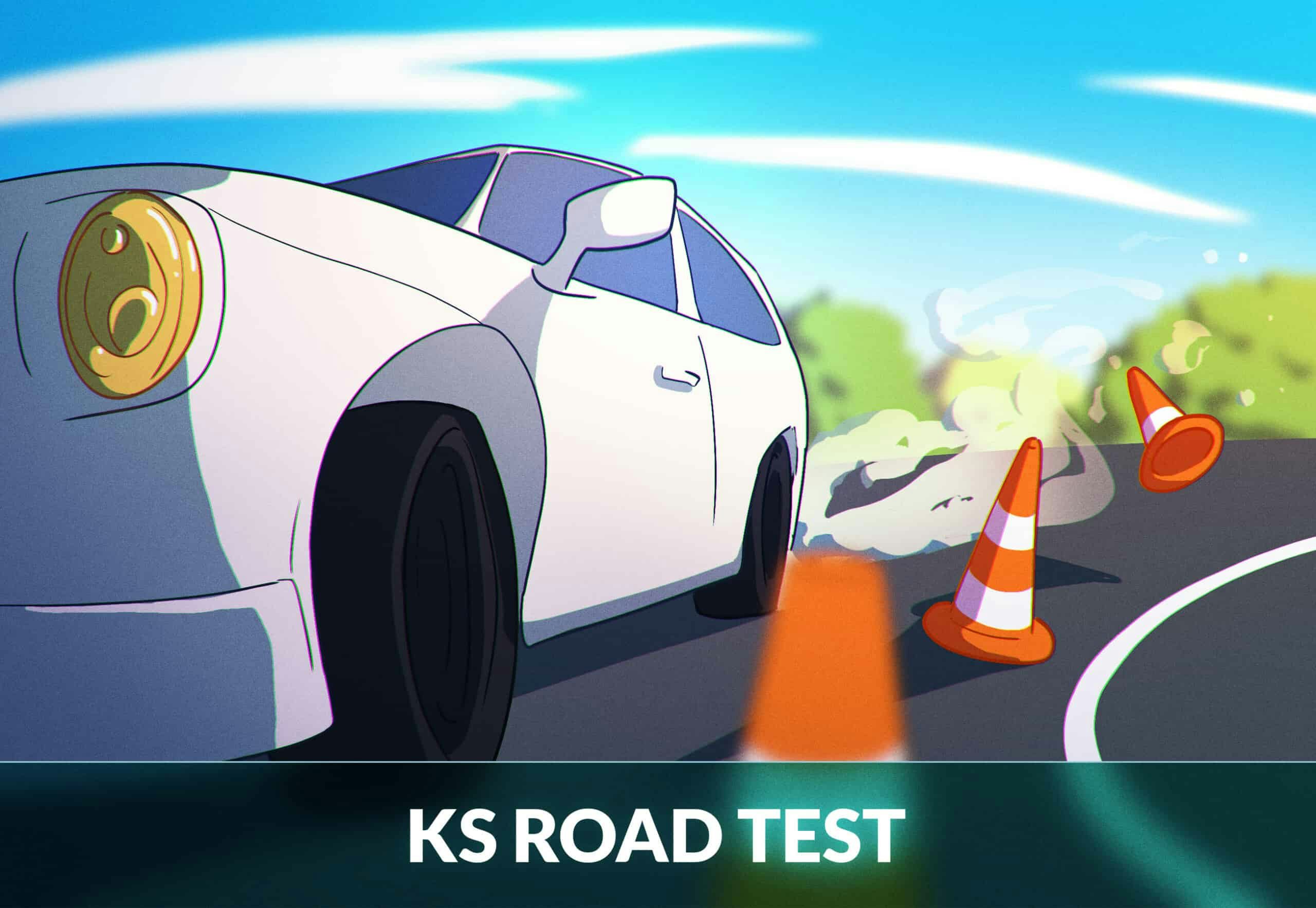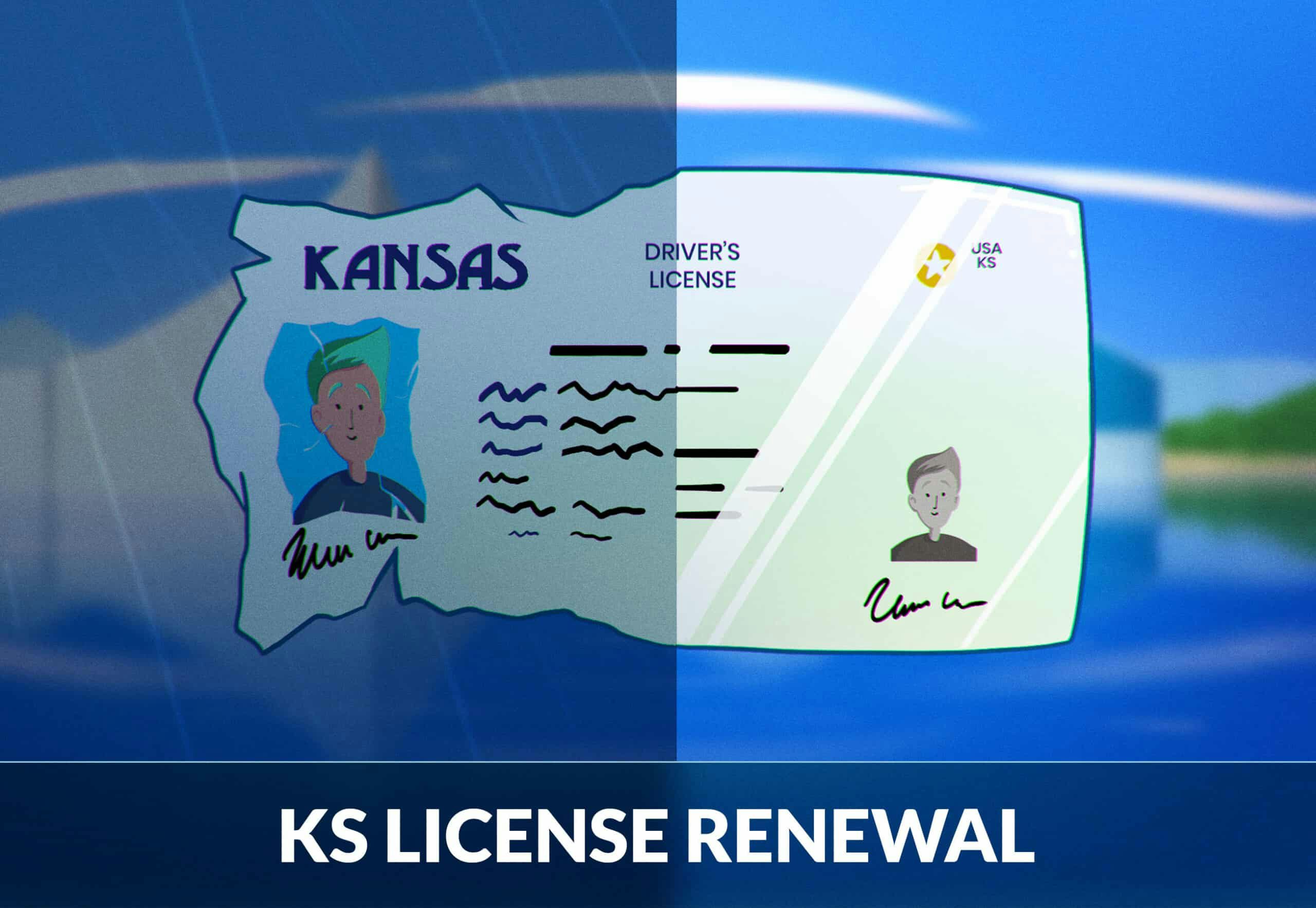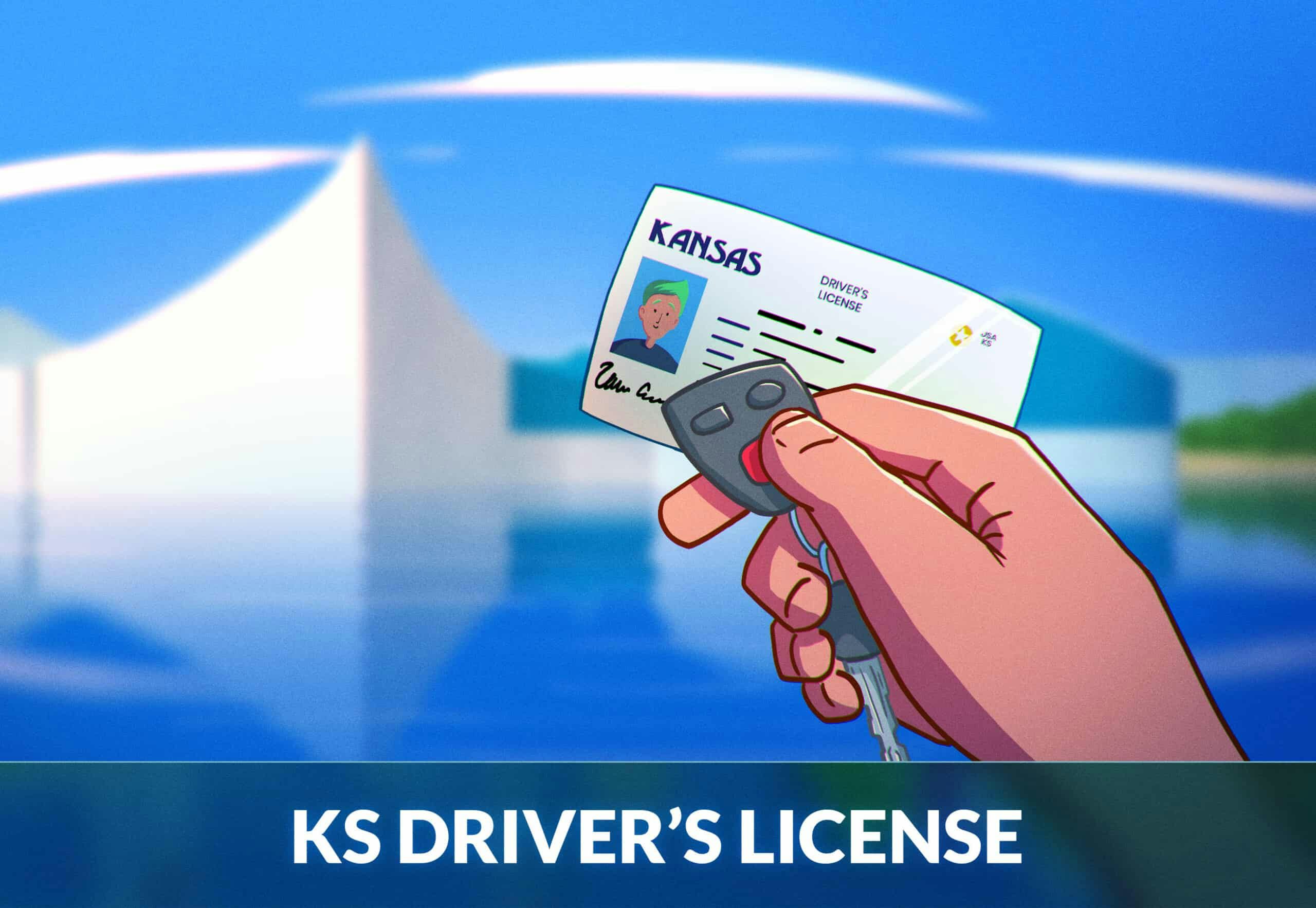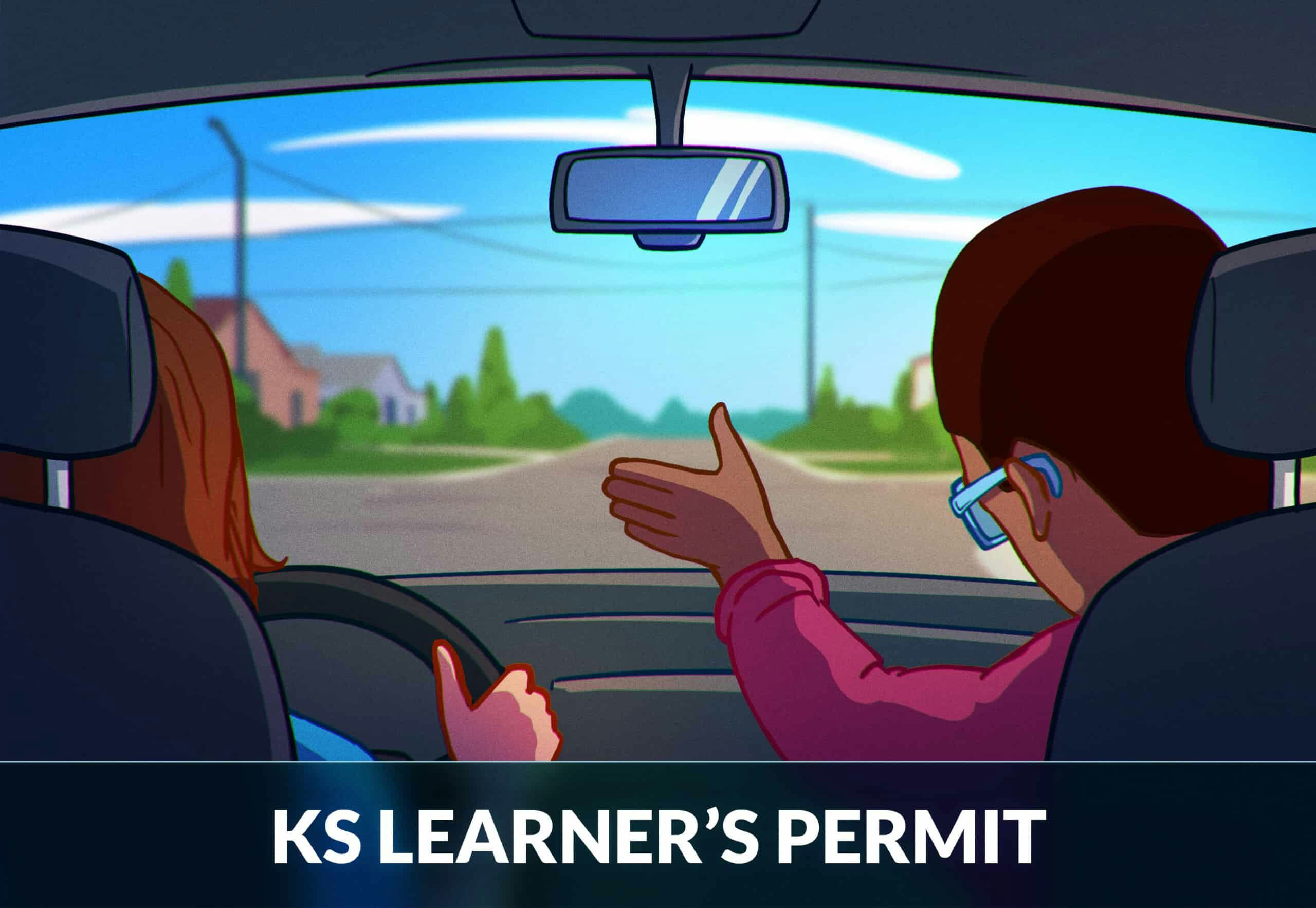
How to Pass the Kansas Road Test: The Ultimate Guide
Most new drivers understandably feel a bit nervous before taking their driving test, but there’s nothing to worry about as long as you properly prepare. If you know what to expect, you’ll be able to practice all the maneuvers that will be on the test before it takes place. You’ll also be able to reduce stress on the big day by collecting documents and checking your vehicle in advance.
In this guide, we will go through everything you need to know to pass the Kansas road test in a breeze.
Kansas Road Test Requirements
Before you schedule a road test appointment, make sure that you’ve completed all the requirements. Kansas has a rather complicated graduated driver’s license program, but we’ll break it all down for you below.
The graduated driver’s license program consists of three parts: learner’s permit, restricted license, and unrestricted license. To get any type of license, you’ll be required to pass a road test.
Checklist for drivers aged 15-16:
- You’ve gotten a learner’s permit after turning 14.
- You’ve had your permit for a minimum of one year.
- You’re at least 15 years old.
- You’ve passed an approved driver’s education course.
- You have at least 25 hours of driving logged and verified. This doesn’t include any driver’s ed behind-the-wheel.
Requirements for drivers aged 16-17:
- You’ve gotten a learner’s permit.
- You’re at least 16.
- You’ve completed 50 hours of supervised driving and logged and verified your hours.
- You’ve had a permit for at least a year.
If you’re aged 18 or over, you must still pass the written, vision and road test, and present the necessary documents. However, you are not required to take driver’s education or log any practice time.
If you’re ready to take your test, schedule an appointment at a testing office near you.
On the Day of Your Kansas Road Test
Make sure you’re prepared for the big day. Check that you have all the necessary documents and that your vehicle is ready. Note that, if you didn’t take driver’s education, you will have to pass a second written test before your road skills test.
Additionally, Kansas allows drivers to take their road test through their driver’s education program. If you bring the DE-99 completion slip to the DMV, you will not be required to take the test through the DMV.
What Documents Should You Bring?
Remember to bring the following documentation – if you cannot provide these documents, you will not be allowed to take the Kansas driving test.
- Social security number.
- Identification.
- Two documents of Kansas residency.
- Your signed and completed driving log.
- Your learner’s permit.
- Certificate of completion for driver’s education, if you took it.
- Fees.
If you’re under 18, you’ll also need permission from a parent/guardian, who will have to provide identification as well.
Vehicle Requirements
You may be required to perform a safety check of your own vehicle in front of the test examiner. You should be able to easily find any key indicators that a vehicle is unsafe.
Here are some tips on how you can properly check your vehicle:
- Walk around your vehicle, observing the general condition of the vehicle. Make sure that surroundings are clear before you begin to drive.
- Check for leaks. Look for puddles on the ground under your vehicle that could indicate low fluid levels.
- Check your tires. Make sure that the tread isn’t worn down too far and that your tires are inflated properly.
- Check your lights. Ensure that your headlights, taillights, brake lights, and turn signals are working and that the lenses are intact.
- Check oil and coolant. If there isn’t a sufficient amount of either, refill them.
- Check seats and seat belts. Make sure that all seats are securely attached and that the driver’s seat is properly adjusted. Seat belts should be working properly.
- Check doors, windows, and mirrors, making sure that they are functioning properly and not obstructed in any way.
- Check heater, air conditioner, and defroster.
- Check your car horn.
- Check your dashboard. Make sure that there aren’t any warning lights on and that you have plenty of gas.
What’s Tested on the Driving Test in Kansas?
You’ll be tested on overall driving ability, as well as a number of maneuvers, which may take place on a designated testing area or on the road.
Here are some difficult maneuvers that are tested on the driving test in Kansas, make sure that you learn how to perform them before scheduling your test. You’ll be tested on at least two:
- Three-point turnabout.
- Forward two-point turnabout.
- Reverse two-point turnabout.
- Left-side parallel park.
- Right-side parallel park.
You’ll also be required to drive over a set testing route that will involve a variety of traffic situations. During this part of the road test, simply demonstrate that you can properly control a vehicle. You should know how to navigate intersections, when to use your turn signals, etc.
What Errors Can Make You Fail Your Road Test?
In Kansas, the road skills test has a ‘ point system’ – you’ll accumulate error points every time you make a minor error. If you get too many points, you’ll fail your test.
These minor errors are listed below:
- Reversals: During a closed-course maneuver, you reverse direction to try to better position your vehicle.
- Encroachments: You touch or go over a boundary line, cone, or marker during a maneuver.
- Turn signals: You fail to use your turn signals when turning or backing.
- Head/traffic checks: You fail to check traffic before entering or exiting the traffic flow.
- Final position: You don’t have your vehicle in the correct final position after a driving maneuver.
Additionally, you’ll automatically fail your test if you make a major error. These are listed below:
- You don’t use your seat belt.
- You get a ticket for disobeying traffic signs/signals, causing a moving violation, breaking the speed limit, ignoring traffic laws, or rolling through stops.
- You don’t yield the right-of-way to other vehicles or pedestrians.
- You become involved in an avoidable crash.
- You bump into other vehicles, pedestrians, or any other objects.
- You drive unsafely in some way.
- Your examiner must prevent a crash.
Your examiner will tell you if you passed at the end of your test, and may give you advice for improvement. The Kansas DMV allows you to retake your road test the next day if you fail.
That’s It!
That’s everything you need to know about passing the road test in Kansas. We hope this guide has helped you out, and that you now feel comfortable with the steps moving forward. If you need any help studying for your upcoming exams, then Zutobi is the perfect study guide with online practice tests, a summarized handbook, and practical driving tips that will help you immensely during the actual road exam.

Avoid beginner mistakes with expert advice
Build road test confidence and reduce anxiety
Make at-home lessons a success with our parent guide
Recommended articles
Country
Ace your DMV test, guaranteed


